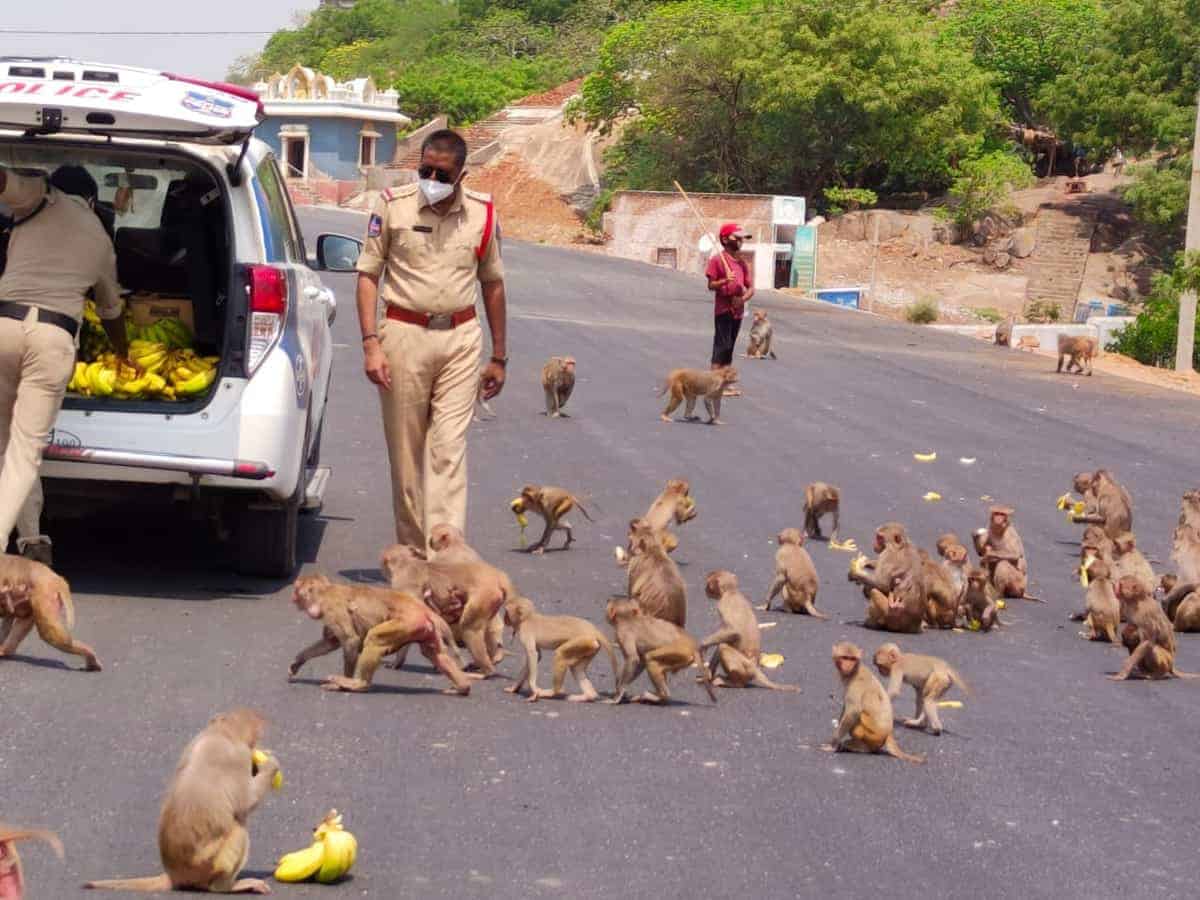Hyderabad: The Telangana agriculture department launched a first-of-its-kind monkey menace study in villages throughout the state to identify hotspots of monkey migration and the number of monkeys.
The survey is being carried out because the monkey problem has been highlighted as the principal impediment to paddy and groundnut conversion.
Officials said Telangana, like Himachal Pradesh, is dealing with the problem, and the northern state adopted a sterilising procedure to keep monkeys from moving about. Agriculture officials around the state were asked to submit information on monkeys in a five-question format, and a unique web feature called the “monkey threat survey” was added to the department’s crop booking system, The Times of India reported.
The questionnaire contains questions about the number of monkeys in the village, whether they move in groups, how much crop damage has occurred as a result of the monkey problem, where they live (old buildings, roadside, forest areas, or elsewhere), and what tools the villagers are using to combat the menace, such as monkey guns and solar fencing.
Field officers while carrying out the survey must also keep track of any local tourist attractions. Each officer is in charge of inputting crop booking and other information for every 10,000 acres, and the same personnel are in charge of the monkey problem survey.
The survey will show the number of monkeys and their hotspots, and the sterilisation procedure might commence at a later date. In the Nirmal district, the animal husbandry department has a theatre where one monkey was sterilised some time ago.
Many farmers in the state have complained to officials that monkeys are destroying their crops, particularly groundnuts, and that they want to be free of the menace. The government then convened a high-level review meeting. The monkey menace survey’ is being carried out since the monkey problem has been regarded as the principal impediment to rice and groundnut crop conversion.

